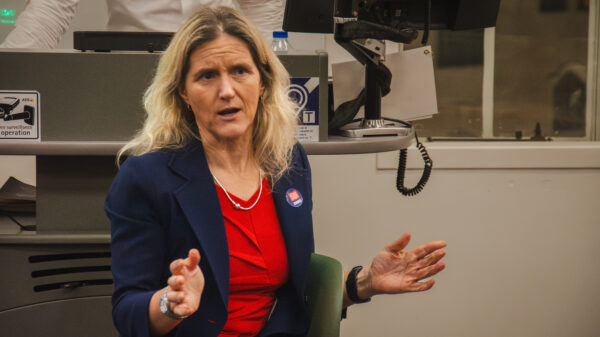King’s College London (KCL) alumna Lucy Powell has been elected Deputy Leader of the Labour Party after defeating Starmer loyalist Bridget Phillipson in a six-week campaign, marking a significant win for the soft-left-wing following Angela Rayner’s resignation.
After a dramatic six-week campaign against Starmer loyalist Bridget Phillipson, KCL Alumna Lucy Powell has been elected as the new Deputy Leader of the Labour Party. Her campaign and subsequent win emerged after previous Deputy Leader and Deputy Prime Minister Angela Rayner was forced to resign over breaking the Ministerial Code due to an underpayment of stamp duty on a property.
Although Phillipson was easily the preferred candidate by the government due to her loyalty to Starmer as his current Education Secretary and Minister for Women and Equalities, Powell’s landslide win of 54.3% of the vote was not a surprise due to her frequently stated ambivalence towards Starmer’s leadership and acknowledgement of how his increasingly centre-right tendencies have led to distrust amongst Labour’s typical electorate.
Born and raised in Manchester in 1974, Powell received an offer to study Chemistry at the University of Oxford’s Somerville College but left after a year to complete the remainder of her Bachelor of Science degree at King’s College London.
When asked about her reasons for switching universities in a recent article in The I Paper, she criticised the elitism of Oxford for being “like Hogwarts” and said that she later “flourished” at King’s, where her interest in politics developed further.
Not long after graduating, she worked as a parliamentary assistant for Beverley Hughes and at the Labour Party Headquarters in Millbank Tower during the 1997 general election campaign that led to the emergence of New Labour. She soon joined and eventually became the campaign director of the pro-EU pressure group Britain in Europe (BiE) by 2004.
Following this, she was selected as the Labour candidate for Manchester Withington in April 2007. Although she failed to be elected in 2010, she was successfully elected as the new MP for Manchester Central in 2012 with 69.1% of the vote.
After serving briefly as Jeremy Corbyn’s Shadow Education Secretary, she was appointed to Keir Starmer’s opposition frontbench as Shadow Culture Secretary in 2021 and Shadow Leader of the House of Commons in 2023. Starmer then appointed her as the Leader of the House of Commons after Labour’s landslide 2024 General Election victory.
She remained in this position until her sudden removal as part of the 2025 British Cabinet reshuffle. This removal, which happened the same time as Angela Rayner’s fall from grace, was alleged to be due to her disagreements with the Prime Minister’s Chief of Staff Morgan McSweeney.
However, the fallout of her departure made her a symbol of Starmer’s isolation from traditionally left-wing, working-class labour voters, thereby meaning that her extremely successful Deputy Leader campaign was sent into action and returned her to an even more influential position in modern British politics.
After her ousting by Starmer, she was encouraged to run by Greater Manchester Mayor Andy Burnham.
Her six-week campaign was defined by a return to the soft-left policies which appeal most to the party’s traditional base. These included critiquing the two-child benefit cap and strengthening Labour’s ties to trade union organisations. She also promised to focus more on the concerns of backbenchers and party members.
Despite her opponent agreeing with her about the inefficacy of the two-child benefit cap, this soft-left campaign marked a stark contrast from the centrist campaign of Bridget Phillipson, whose close ties to Starmer meant she was reluctant to critique his leadership.
However, her campaign remained largely centrist and liberal in tone compared to the more left-wing platform under Jeremy Corbyn’s leadership. Her statement upon her election that “we won’t win by trying to out-Reform Reform, but by building a broad progressive consensus,” indicating that Labour may seek to position itself as a social democratic party rather than one moving further toward the centre-right.
English with Film Studies Undergraduate at King's College London.
















